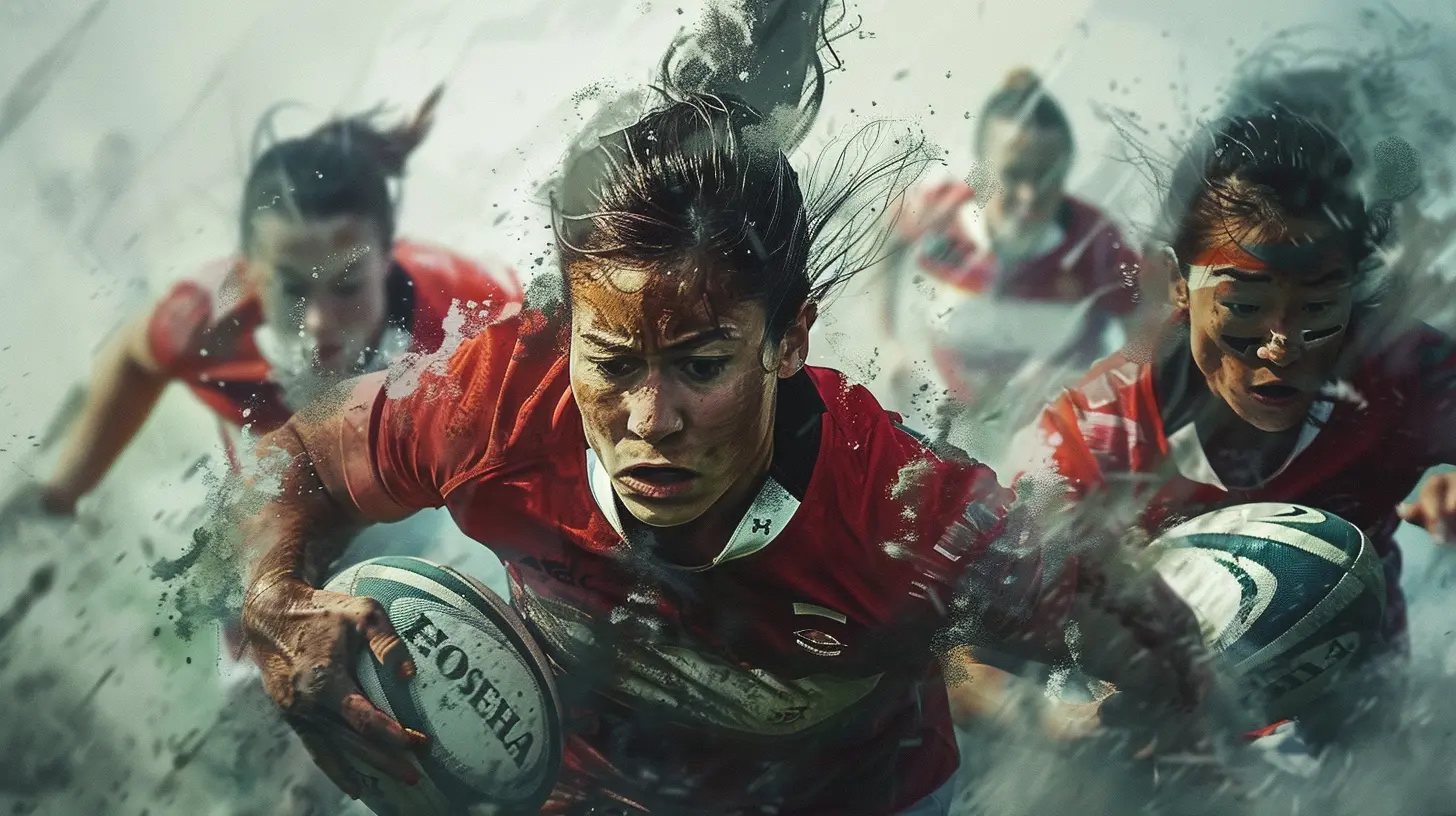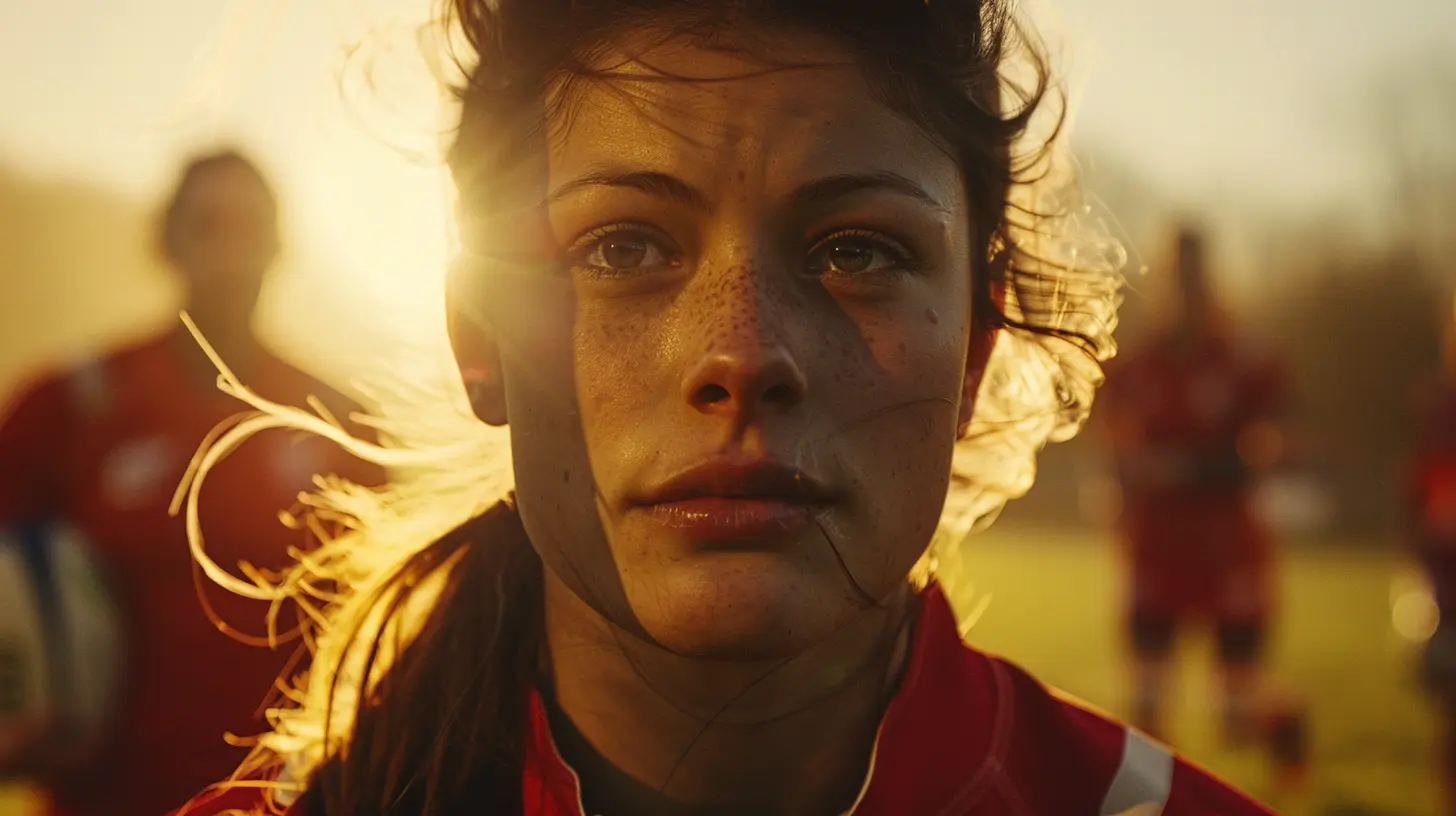The Rise of Womens Rugby: Breaking Barriers and Setting Records
10 April 2025
Women’s rugby isn’t just growing; it’s exploding! From local fields to international stadiums, women are proving they can tackle, run, and score with the same heart and intensity as their male counterparts. In fact, they’re doing more than just keeping up—they’re breaking barriers, setting records, and inspiring a whole new generation of athletes. It’s no longer a quiet revolution; it’s a full-blown movement.
So, how did we get here? Let’s dive into the meteoric rise of women’s rugby and explore why this sport is capturing the world’s attention.

The Early Days: A Tough Field to Plow
Despite what it looks like today, women’s rugby had a rocky start. It wasn't always stadium lights and roaring crowds. For the longest time, rugby was considered a "man's game." The idea of women participating in such a physical, aggressive sport was met with skepticism and, frankly, a lot of resistance.Back in the early 20th century, women's rugby was pretty much non-existent. The sport was dominated by men, and opportunities for women were scarce. There were a few trailblazing women who defied expectations and played informally, but it wasn’t until the 1960s and 1970s that things began to shift.
Women’s rugby teams started popping up across Europe, New Zealand, and the US. While the game itself remained largely the same, the hurdles female players had to jump over were immense. They often faced discriminatory attitudes, lack of funding, and minimal media attention. But through sheer determination, they continued to push forward.

Breaking Down Barriers: The 1980s and 1990s
By the 1980s, women’s rugby was gaining some traction. Teams were forming at universities and clubs around the world, and international competitions were slowly becoming a reality. The first Women’s Rugby World Cup took place in 1991, marking a huge milestone for the sport. Hosted by Wales, it featured 12 teams and was a significant step toward legitimizing women’s rugby on the global stage.The 1990s were a key decade for women's rugby. The sport started receiving more recognition, and national governing bodies began to support the women’s game. The International Rugby Football Board (now World Rugby) officially sanctioned the Women’s Rugby World Cup in 1998. This was a game-changer. Not only did it provide an official platform for competition, but it also signaled to the world that women’s rugby was here to stay.
Despite these strides, challenges remained. Funding was still limited, and women’s rugby continued to be overshadowed by the men’s game. The road ahead was still long, but the groundwork had been laid.

The Modern Era: A Surge in Popularity
Fast forward to the 21st century, and women’s rugby has surged into the limelight. The growth in participation, viewership, and media coverage has been nothing short of phenomenal. Women’s rugby is now one of the fastest-growing sports in the world. How did this happen?Inclusion in the Olympics
One of the biggest boosts to women’s rugby came with the inclusion of rugby sevens in the 2016 Rio Olympics. Rugby sevens, a faster-paced and shorter version of traditional rugby, was a perfect fit for the Olympic stage. The women’s competition was thrilling, with Australia taking home the gold and showcasing the incredible talent of female rugby players.The Olympics provided an unmatched global platform, introducing millions to the excitement of women’s rugby. It was a watershed moment. After the Rio Games, interest in the sport skyrocketed, with more girls and women picking up the rugby ball and giving it a go.
Professional Leagues and Increased Investment
Another critical development has been the establishment of professional leagues for women’s rugby. Countries like England, France, and New Zealand have created their own professional or semi-professional leagues, giving female athletes the opportunity to play rugby at the highest level while earning a living from the sport.Increased investment in the women’s game has also led to better coaching, facilities, and visibility. Sponsors have started to take notice, and the media is slowly but surely giving women’s rugby the attention it deserves. This is helping to build a sustainable future for the sport, ensuring that women’s rugby can continue to grow and thrive.

Setting Records and Smashing Stereotypes
The rise of women’s rugby isn’t just about growth in numbers—it’s about smashing stereotypes and setting new records. The women who play rugby today are defying outdated notions of what female athletes can and should do. They’re proving that women are just as tough, just as skilled, and just as passionate as men when it comes to rugby.Record-Breaking Performances
Take a look at some of the incredible feats by female rugby players in recent years:- Portia Woodman, a New Zealand rugby sevens star, has broken numerous records, including becoming the top try-scorer in the history of the World Rugby Women’s Sevens Series.
- England Women’s Rugby Team (the Red Roses) set a record for the longest winning streak in test rugby, male or female, in 2022 with 30 consecutive victories.
- Emily Scarratt, an England centre, became the first woman to score over 500 points in international rugby, an achievement that puts her in the pantheon of all-time greats.
These women are proving that they can not only compete but dominate on the international stage. And with every record they break, they’re inspiring the next generation of female players to dream even bigger.
Smashing Stereotypes
For years, rugby has been seen as a "man’s sport" because of its physicality. But women’s rugby is changing that perception. More and more, people are realizing that women are perfectly capable of playing a tough, physical sport without sacrificing their femininity or identity.In fact, rugby is providing women with an outlet to express their strength, resilience, and athleticism in ways that traditional gender roles have often discouraged. It’s a sport that embraces diversity, welcoming players of all shapes, sizes, and skill sets. Whether you’re a sprinter, a tackler, or a playmaker, there’s a place for you in rugby.
The Future of Women’s Rugby: What’s Next?
So, where is women’s rugby headed? If current trends are anything to go by, the future looks incredibly bright.More Professional Opportunities
One of the key areas for growth is the expansion of professional opportunities for female rugby players. While some countries have already established professional leagues, there’s still a long way to go. More investment, sponsorship, and media rights deals will help create a more sustainable ecosystem for women’s rugby, allowing players to focus entirely on their sport without needing to juggle additional jobs.Increased Global Participation
Rugby is growing in popularity across the globe, with countries like Brazil, Japan, and Kenya emerging as new powerhouses in women’s rugby. World Rugby has ambitious plans to continue expanding the sport, particularly in regions where rugby hasn’t traditionally been strong. This global growth will bring more competition, more talent, and more excitement to women’s rugby.Equal Pay and Recognition
Another critical issue is the push for equal pay and recognition. While progress has been made, there’s still a significant gap between the earnings of male and female rugby players. Closing this gap will require continued advocacy, but the momentum is clearly on the side of equality. As women’s rugby continues to grow, the case for equal pay will only become stronger.Media Coverage
The media plays a crucial role in shaping public perception of women’s rugby. While coverage has improved in recent years, there’s still room for growth. Major broadcasters and sports networks need to do more to showcase women’s rugby on prime-time platforms, helping to build a wider fanbase and increase visibility for the sport.
Conclusion: It’s Only Up from Here
Women’s rugby has come a long way from its humble beginnings. What started as a marginalized sport is now a global powerhouse, breaking barriers and setting records with every passing year. From the grassroots level to the international stage, women’s rugby is proving that it’s here to stay—and it’s only getting bigger.With more investment, better opportunities, and increased recognition, the future of women’s rugby looks incredibly promising. Whether you’re a fan, a player, or someone just learning about the sport, one thing is clear: women’s rugby is on the rise, and there’s no stopping it.
So, what are you waiting for? Grab a ball, find a team, and join the movement. The future of women’s rugby is calling, and it’s going to be one heck of a ride.
all images in this post were generated using AI tools
Category:
RugbyAuthor:

Uziel Franco
Discussion
rate this article
7 comments
Peyton Beck
This article effectively highlights the transformative journey of women’s rugby, showcasing not only the sport’s growing popularity but also the athletes’ resilience in breaking societal barriers. The record-setting performances are indicative of their dedication, paving the way for future generations and inspiring broader acceptance in athletics.
April 21, 2025 at 11:42 AM

Uziel Franco
Thank you for your insightful comment! I’m glad you found the article impactful in showcasing the resilience and achievements of women in rugby. Their journey truly is inspiring!
Felicity McAlister
“Finally, women’s rugby is getting the spotlight it deserves! While the world’s been sleeping, these athletes are smashing stereotypes and records. It’s about time we celebrate fierce women who tackle barriers both on and off the field. Keep up or get left behind, because they’re just getting started!”
April 16, 2025 at 11:56 AM

Uziel Franco
Thank you! It's inspiring to see the recognition these incredible athletes are finally receiving. Their determination is truly paving the way for future generations. Let's keep celebrating their achievements!
Vivian McAuley
The surge in women’s rugby exemplifies empowerment, as athletes break stereotypes, shatter records, and inspire future generations in sports.
April 14, 2025 at 11:43 AM

Uziel Franco
Thank you for your insightful comment! Indeed, the surge in women’s rugby is a powerful testament to empowerment and progress in sports.
Etta Mendoza
Absolutely inspiring! Women’s rugby is not just about the sport; it’s about empowerment, breaking barriers, and setting new records. It’s exciting to see such passionate athletes making history! 💪🏉
April 13, 2025 at 6:43 PM

Uziel Franco
Thank you for your support! Women's rugby truly exemplifies empowerment and progress. Excited to see where this journey leads! 💪🏉
Jude Mahoney
Women's rugby is inspiring; it's breaking barriers and redefining sports excellence!
April 12, 2025 at 6:27 PM

Uziel Franco
Thank you! Women’s rugby is indeed making incredible strides and showcasing the power of sport to empower and unite.
Astralis Bowers
Women's rugby is not just rising—it's shattering stereotypes and redefining sports history. These athletes are powerful, fierce, and unstoppable. Get ready; the future of rugby is female and undeniably fierce!
April 11, 2025 at 3:13 AM

Uziel Franco
Absolutely! Women's rugby is indeed breaking barriers and setting new standards in sports. Their strength and determination are reshaping the game and inspiring future generations. Exciting times ahead!
Thalyn Harper
“Who knew tackling stereotypes could be as thrilling as tackling opponents? Women’s rugby is not just breaking records; it’s kicking down doors and scoring tries on and off the field! Grab your popcorn—this is one game where the ladies are definitely winning, both in play and in breaking barriers!”
April 10, 2025 at 8:56 PM

Uziel Franco
Absolutely! Women's rugby is redefining the game and challenging stereotypes with every match. It's an exciting time for the sport!
MORE POSTS

How to Overcome the Fear of the Open Water in Triathlon

Parkour: The Urban Sport That Redefines Limits

All-Star Games and the Future of Fan Interaction: What to Expect
![The Journey from Small Town to Big Stage: [Player Name]s Inspirational Story](/pictures/blog/small/the-journey-from-small-town-to-big-stage-player-names-inspirational-story_4.webp)
The Journey from Small Town to Big Stage: [Player Name]s Inspirational Story

Skate Parks vs Street Skating: Where Should You Ride?
![The Versatility of [Player Name]: How Their All-Around Game Shapes the Team](/pictures/blog/small/the-versatility-of-player-name-how-their-all-around-game-shapes-the-team_4.webp)
The Versatility of [Player Name]: How Their All-Around Game Shapes the Team